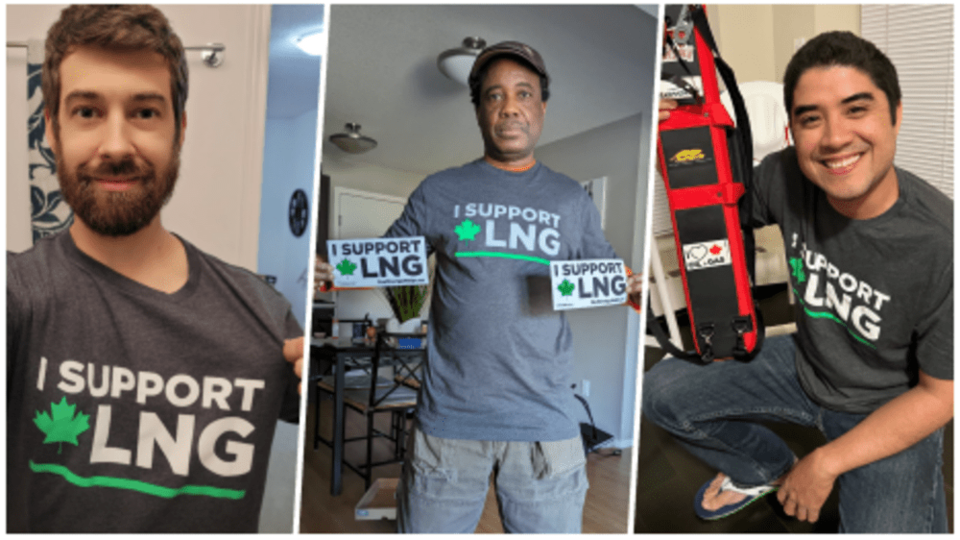British Columbia’s nascent liquefied natural gas (LNG) industry is poised to provide substantial economic benefits for Canadians and First Nations. According to a report by the Conference Board of Canada, B.C.’s LNG sector could create new investments of more than $500 billion, 96,550 new jobs, $6 billion in wages, and over $170 billion in tax revenues between 2020 and 2064.
Much of these benefits will be shared with First Nations whose land and expertise are being utilized to develop these resources responsibly - or in cases like Cedar LNG and Ksi Lisims LNG, are championed by Indigenous communities as lead proponents.
Canada Action – an independent, grassroots, non-partisan organization – believes this journey toward economic reconciliation is critical to the country’s future prosperity.
Examples of Indigenous collaboration and ownership in Canadian LNG projects include:
- Cedar LNG – The largest First Nations majority-owned infrastructure project in Canada, with the Haisla Nation
- Ksi Lisims LNG – A major LNG export facility to be built on land owned by Nisga’a Nation, a lead proponent
- Coastal GasLink – 17 First Nations along CGL’s route signed a 10% equity stake in the pipeline project
- Woodfibre LNG – A smaller LNG export terminal underway in partnership with Squamish Nation
- LNG Canada – The largest private-sector investment in Canadian history, which has spent over $3 billion on Indigenous-owned and local businesses to date
Here is what Indigenous leaders are saying about economic reconciliation, emissions reduction, energy security, and the recent proposed fossil fuel advertising ban Bill C-372.
Karen Ogen – CEO, First Nations LNG Alliance
"Projects that represent Indigenous self-determination are leading to Indigenous communities reclaiming their rightful place in the world, securing their language and culture, and bringing prosperity to their people.
When First Nations are included in decisions, as partners and owners in resource projects, everyone wins. This is the future of business in B.C. and in Canada. And the beginning of a new Indigenous-powered energy future."
Source: Business in Vancouver
Crystal Smith – Chief Councillor, Haisla Nation
"Focused only on a fractional reduction in Canada's overall emissions, the stark demand of the climate activists remains oblivious to other basic considerations. Already economically vulnerable, most First Nations are heavily exposed to the consequences of adding energy poverty to domestic poverty.
Unaffordable energy costs would compound cost of living increases in the rural, remote and northern locations where most First Nations communities are located and where travel distances are greater, public transit is non-existent, home heating requirements are greater and supply chains are longer…
If left to climate activists, Indigenous people would be the last to benefit, the last to participate, and the last to be connected to new infrastructure."
Source: Vancouver Is Awesome
Eva Clayton – President, Nisga'a Lisims Government
"We have worked very hard to ensure our project is capable of achieving net-zero performance. We put forward an ambitious action plan for producing net-zero LNG right here at home to help lower global emissions by displacing coal and oil overseas.
I am pleased to see the B.C. government's new LNG framework recognizing what we have long known: that economic reconciliation and net-zero LNG development go hand in hand."
Source: Ksi Lisims LNG

Ellis Ross – MLA, Skeena, British Columbia
"There's an energy crisis on one hand and a race against time to reduce emissions on the other. British Columbia's LNG projects can be an answer to solve both these problems in the future…
If we want to be part of the global solution, we in British Columbia have a duty to get our act together and make that global supply readily available…
18 LNG projects were proposed; we're left with one. The ones that hung around were fully endorsed by First Nations – Woodfibre (Squamish Nation), Cedar LNG (Haisla Nation), KSI LNG (Nisga'a Nation)."
Source: Terrace Standard
Stephen Buffalo – President & CEO, Indian Resource Council
On Bill C-372:
"Indigenous people fully understand how Canada works. Reliance on government funding leaves us wallowing in state-induced poverty and despair. Economic independence is essential and is now achievable, even with all the constraints that exist on our nations through the Indian Act, the reserve system and the complex laws and regulations that constrain our freedoms…
Properly handled resource development is, for most of our communities, the only realistic way out of the current welfare trap. We will not allow a small number of thought-control advocates to stop us from making decisions about our economic future. And I trust First Nations, Metis and Inuit to protect our traditional lands much more than I trust governments and environmental groups."
Source: Macdonald-Laurier Institute
Join today
More than ever, First Nations are speaking out to support the responsible development of natural resources on their lands. For them, these projects are a means of generating own-source revenues which will aid in improving socio-economic conditions within their communities and, in many instances, help lift their people out of poverty.
To learn more about the benefits of LNG and how you can show your support, visit BCLNGHelps.ca.



